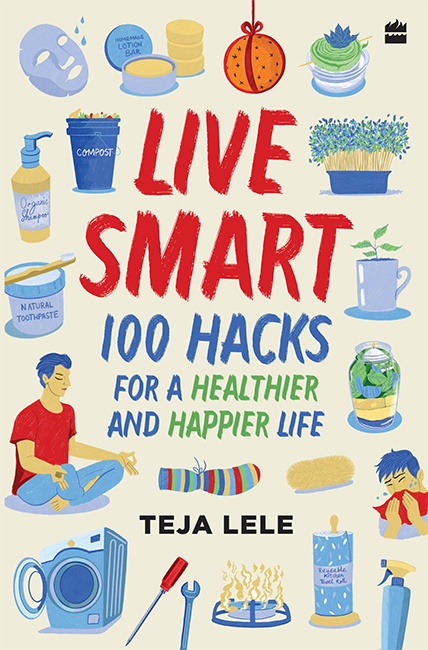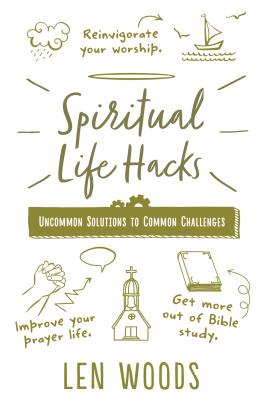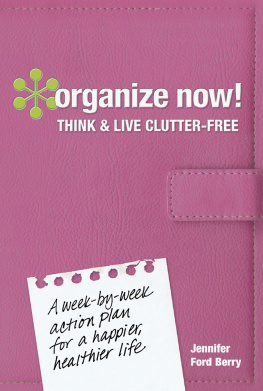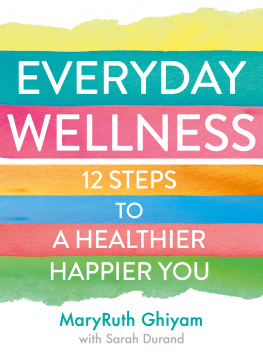Table of Contents


For Aai and Baba, the wind beneath my wings
CONTENTS
Happiness belongs to the self-sufficient.
Aristotle
In a past life, I must have been a homesteader. Waking up at the crack of dawn, milking cows, raising chickens, keeping bees, growing vegetables, preserving food, setting up a rain barrel, upcycling textiles, making my own medicines My forebears did it all. How could I have not? My inner do-it-yourself (DIY) freak often goes on trips that let me relive the simple, off-the-grid lifestyle that offers the chance to do it all myself.
In my minds eye, I see myself as Gone with the Winds Scarlett OHara, silhouetted against the setting sun as she worked the fields near Tara, her large family home.
Well, homestead really!
In this life, however, I am much too dependent on other people to ever pass off as a homesteader. A leaking tap means calling the plumber, the onset of summer means reminding the HVAC guy to clean the air-conditioner filters, and a tooth twinge means running to the dentist. Also, the tube light wont switch on so where is the electrician already?
Self-sustainability doesnt come easy in todays world, where almost everything we need is a click or a swipe away. Inexpensive labour has rendered most of us unable to do even the smallest of repairs and chores by ourselves, and the availability of doorstep delivery and online options ensures that we never need to step out of our comfort zone, unless absolutely necessary.
The year 2020 made it NECESSARY.
The COVID-19 pandemic shook the world up upending nations, businesses, workplaces, and homes. While Indian Prime Minister Narendra Modi made aatmanirbhar (self-reliant) a part of our lexicon only after he announced Unlock 1.0, India was already waking up to the importance of being self-sufficient during the COVID-19 lockdown.
The pandemic was a great leveller, confining everyone to their homes, without the help we were used to getting. Be it cooking or gardening, beauty treatments or health issues, electrical jobs or plumbing problems we had to learn to handle everything on our own. If we couldnt, we just had to do without. This was a rude wake-up call to millions of people who were previously used to outsourcing every possible domestic task to helpers and specialists.
The disturbing global event, which claimed millions of lives, adversely affected economies, food supply security, and health and wellness, also led us to think about becoming less complacent. Self-reliance was the only thing that kept us going during those long, locked-in months.
The lockdowns may now be behind us, but our need to be self-sufficient hasnt gone away. The idea of self-sufficiency has for long been used interchangeably with the concept of homesteading the latter being associated with large acreages of land where people grew their own food, tended to animals and livestock, canned and preserved food and grain, made their own soaps and cleaners, and practised simple living. This lifestyle choice, which was often used by governments in the past to help people put down roots in previously unsettled areas, advocates self-sufficiency.
And coming back to the homestead, my inner Scarlett OHara would love to think that I could take the back-to-the-land, survivalism route in the face of challenges and adversity. Yet, my forebears were obviously made of stronger stuff than I am. I possess neither their fortitude and grit, nor their knowledge and expertise. What I do possess, however, is the Indian propensity for jugaad a flexible approach to problem-solving, using limited resources in an innovative way. The pursuit of a self-sufficient lifestyle may not be easy, but it is possible to hack or jugaad your way to self-subsistence. And, in this part of the world, we excel at it.
Hacking is now part of our everyday vocabulary, but the phrase life hack is said to have been coined at a technology conference in 2004. Back then, it meant an inelegant but efficient solution to a computing problem. Over time, the term has quickly become a part of our life, and translates into a tip, trick, shortcut, or method that increases productivity and efficiency. A life hack is meant to free up time by making tasks easier, faster and better to help you live smarter. Be it the internet, magazines, newspapers, or conversations hacks abound.
Over the last few years, my inclination to DIY has helped me learn new ways of doing important things, tasks that, in the pre-pandemic era, I would have happily handed off to someone else. Along the way, I have come to realize that creating, doing, making, and repairing things not only makes me less dependent on others no more Bhaiyya, sink fix karne kab aaoge? (Bhaiyya, when will you come to fix the sink?) but also offers a multitude of benefits. It has helped me unlearn a few dogmas, learn new skills, cultivate a sense of accomplishment and pride, save money, and help the environment.
Most importantly, it helps me FOCUS.
At any given point in time, on any day of the week, my laptop has eight to ten tabs open on the browser. The same goes for my mind, where I toggle between the many open tabs home, work, kitchen, relationships, to-dos, must-dos, and many more through the day. Having a task at hand, that I must do well, lets me apply my mind solely on one thing and improves my concentration.
I find it extremely therapeutic and restorative, as it mentally transports me into flow, a state in which I feel utmost involvement, greater enjoyment, and heightened energy.
WHAT IS FLOW?
In his 1990 book, Flow: The Psychology of Optimal Experience, positive psychologist Mihly Cskszentmihlyi writes that flow is a state of complete immersion in an activity. He describes it as a state in which people are so involved in an activity that nothing else seems to matter; the experience is so enjoyable that people will continue to do it even at great cost, for the sheer sake of doing it.
He believes it offers a number of benefits, including a sense of enjoyment and fulfilment, more motivation, amplified engagement, skill development, improved performance and creativity, and most important of all increased happiness.
Of course, not everything gives me flow, for not all tasks and odd jobs are created equal. But if getting into the flow of things can help shift happiness levels, isnt it worth doing my own work, chores, repair, maintenance, and upkeep around the home(stead)?
Around the home, this translates into increasing self-sufficiency skills to a level where you can do most things on your own. It may appear daunting, but living smarter is a skill that can be learnt and honed. Apart from shaking out the cobwebs in your mind, it can lead to a better standard of living and a healthier, more rewarding lifestyle. Modern life may have numerous benefits, but it is accompanied by many problems that we are often unaware of a shrinking attention span, a desire for immediate gratification, intolerance for hard work, and an overall sense of entitlement. And with outsourcing becoming the in thing, the problem has became increasingly pronounced.
But now, with growing awareness, and the desire to do our bit and make a difference, it makes sense to leave behind a few newfangled notions and return to the old ways of doing things. There was a reason our forebears chose to do things a particular way. Adopting their habits and practices could take us back to a natural way of living much needed in our often-simulated, almost-synthetic lifestyle.









